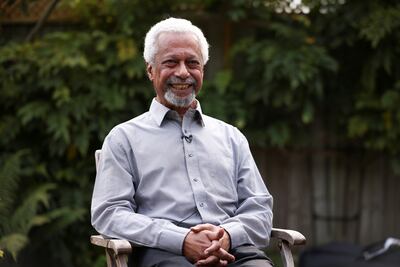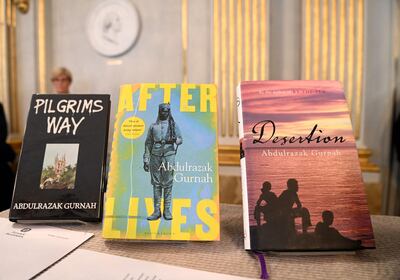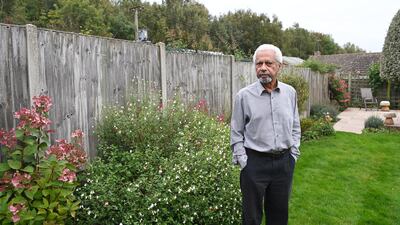Newly crowned Nobel Prize laureate Abdulrazak Gurnah has scolded his adopted home of Britain for being "rather nasty" in its drive to keep out asylum seekers.
Mr Gurnah said Brexit had exposed a "certain meanness" about Britain - but also criticised mainland Europe for greeting migrants with too much barbed wire and too little compassion.
Speaking to Reuters after winning the Nobel Prize in Literature, he said Europeans had no right to lecture people for leaving their homes to seek a better life.
"Millions of Europeans over centuries left their homes for precisely that reason and invaded the world for precisely that reason," he said.
The Nobel jury praised Mr Gurnah, 73, for portraying the fate of refugees in his novels, which he wrote after fleeing Tanzania as a young man and settling in Britain.
He said fiction could play a part in the debate on immigration and colonialism. "Not by educating but by informing, by engaging, by speaking about things, by making people live," he said.

The award came a day after UK Prime Minister Boris Johnson promised a historic break with mass immigration in his speech to the Conservative Party conference. Home Secretary Priti Patel earlier said the asylum system was collapsing under the strain of illegal migration.
"Currently, it seems the government is rather nasty about people seeking asylum or people seeking admittance into this country," said Mr Gurnah.
"Why would they be surprised? Who wouldn't want to come to a country that is more prosperous? There is a kind of meanness in this response."
He said Europe more broadly should greet migrants "with greater compassion rather than with barbed wire - rather than a kind of discourse that Europe is going to be destroyed".
"You have to ask the question: what is so horrible about where they are that they will do such things, that they will take such risks," he said.

Mr Gurnah moved to Britain in the 1960s to escape persecution against Arabs in Tanzania. His breakthrough work, the 1994 novel Paradise, was set in East Africa during the First World War.
His most recent work, Afterlives, was published in 2020 and takes up where Paradise left off. Speaking to The National last year, he described it as a portrayal of the effects of colonialism.
“Gurnah’s dedication to truth and his aversion to simplification are striking,” said Anders Olsson, the chairman of the Nobel committee.
"His novels recoil from stereotypical descriptions and open our gaze to a culturally diversified East Africa unfamiliar to many in other parts of the world.
“An unending exploration driven by intellectual passion is present in all his books, and equally prominent now, in Afterlives, as when he began writing as a 21-year-old refugee."

